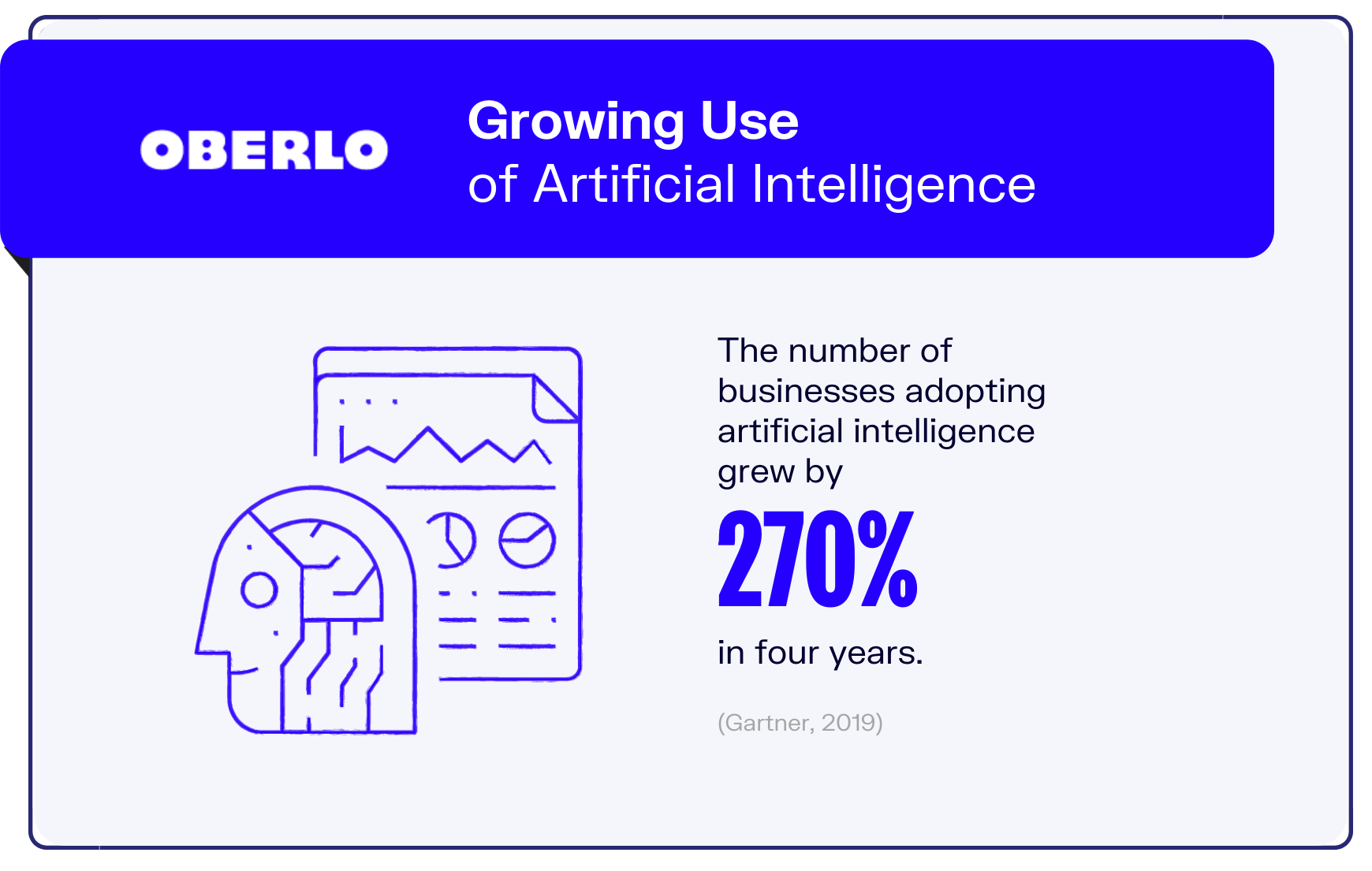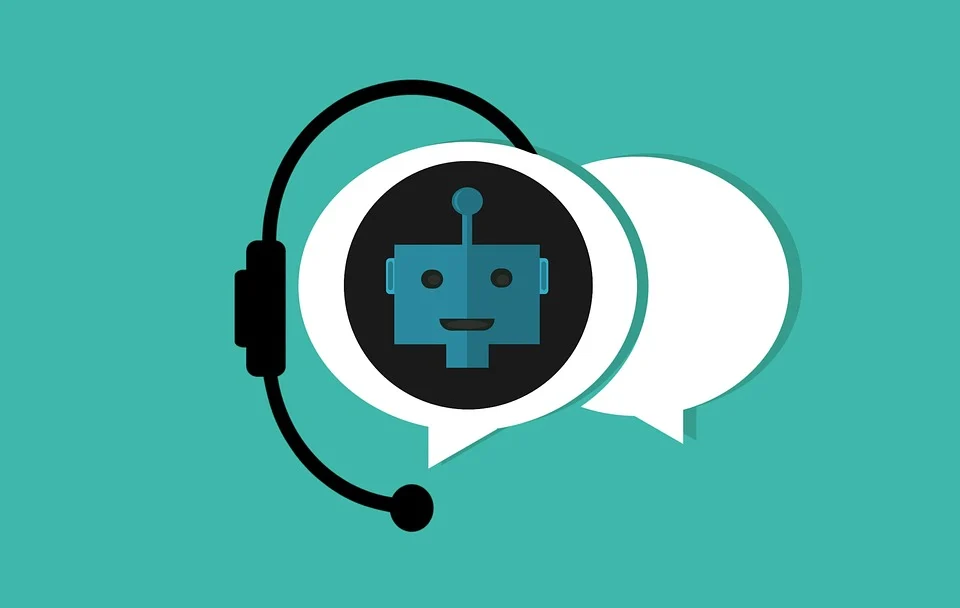The topic ofArtificial Intelligence (AI) may seem quite complex and sophisticated to some. This could be because the term is often thrown around as a trigger word to sparka reader’s interest and lure them in. Hollywood’s representation of AI is a classic example of this.
Consequently, it may come as a surprise to learn that AI algorithms (as advanced as they may be) are something we interact with on a daily basis, whether we’re aware of it or not.
For example, let’s say you need to contact your bank. You call and are greeted by a robotic voice asking you to confirm your bank details. You do so and are then automatically passed through to a call handler who has your confirmed information in front of them.
You just interacted with an AI automated system!
Not only did this process make your conversation with the call handler quicker, but it also made the call more secure. This is just one example of the strong link between Artificial Intelligence and website security.
Most machines operate through algorithms that have been set to tell them what to do at any given moment. With Artificial Intelligence, however, the machine can create its own algorithm and establish new routes to assist and advance human operations. (This is how the bank’s automated system was able to transfer you to the correct department.)
Most technology is essential to ensure the success of a company. For example, call centre software for small business is crucial to cope with the high level of communications. For many, AI software is fundamental in keeping the content marketing industry going in the right direction.
Not only can AI help us in everyday work tasks, but it also makes content marketing easier and much more efficient.
What Exactly Is AI?
The term Artificial Intelligence is used to describe a model or machine that can carry out tasks that would normally require human brain functions. This can include problem-solving, decision-making, and speech recognition.
To fully understand AI, it’s important to have a grasp of some AI software. Here, we will focus on BERT and GPT-3.
Bi-Directional Encoder Representations from Transformers
BERT software was created by Google. It analyzes and processes sentences and questions in context to the surrounding words, rather than word by word.
This is greatly advanced and can be used to help businesses advance their question-answering system. This will not only make it easier to provide first-class content, but it’ll also save you time and money when running a business.
Generative Pretrained Transformer 3
GPT-3 is an autoregressive language model that uses automated learning to produce content that could pass as a human creation. The aim of this is to be so advanced that recipients aren’t aware that they’re reading text from (or interacting with) an AI software.
AI Applications
There are many Artificial Intelligence applications that can be implemented throughout a business.
However, many companies are yet to dip their toe into the AI pond. They are so occupied with their current business systems, such as cloud computing for a remote work environment that they don’t even realize how much AI could benefit them.
Here, we’ll outline some of the ways AI can change the content marketing game by making it easier to create high-quality work.
Social Media
The use of Artificial Intelligence on social media platforms is ever-growing and can change brand marketing strategies completely. In fact, it’s been estimated that the value of AI in the social SEO sphere helps you with your social media posts.
It can also offer an automated brief builder. This will cut out more than half the work required for you, and allow you to plan compelling content in minutes.
This application can also give you automated content personalization to increase traffic, and can even personalize calls to action (CTAs) depending on your audience history.
Some AI applications even help you ensure all content is aligned to present a unified brand persona. It also provides you with useful metrics which will make it easy to improve your business workflow process, and produce better performing content.
AI Copywriting
Copywriting is one of the most important factors in creating a strong marketing strategy. So, it’s no surprise that AI copywriting is one of the most popular AI processes within the marketing sector.
Although this technology may not be advanced enough to create completely original copy, it can certainly make life easier for copywriters. (So, stay calm, the machines aren’t after your job… yet.)
Successful AI copywriting requires a collaboration between the AI machine and the human copywriter.
If a copywriter gets stuck halfway through a piece of copy, AI can assist by filling in the blanks with popular terms and providing SEO service. This can always be amended by the copywriter to make it more suitable.
AI can also provide auto-generated content ideas and suggestions. This will particularly help if you’re ever faced with writer’s block.
For instance, if a writer is stumped on what topic to choose for their next article or blog post, AI can assist. The algorithm can collect data on the most popular trends and analyze whether there is a gap in those markets. This will make content marketing easier for you and help you stand out from the crowd.
As amazing as this may sound, AI copywriting has its limitations. As mentioned before, a machine is unable to produce 100% original and creative content. It’s great for helping you choose the right keywords but It’s not capable of producing unique, never-seen-before ideas. So the content it creates would be a mix of already published work. Now, if a human did that, it would be classed as plagiarizing.
Nevertheless, the advancements AI copywriting has made until now have been very significant. And, there are no doubt developments will continue to be made to eliminate drawbacks.
AI Automated Marketing Content
Predictive Analysis
Predictive analytics is normally used to estimate the likelihood of potential outcomes. This works by using existing data to create a model that can predict the outcomes of future data.
The aim of predictive analysis in a work setting is to create a personalized customer experience at every stage of the marketing process. As interests often change so quickly, this can help organizations foresee specific trends or customer behavior – and be prepared for them.
AI software can also investigate speech analytics to help you anticipate customer problems, and tackle them to eliminate bulk complaints. You can create content to help customers deal with a widespread problem. If you can give your readers what they need without having to directly ask them, you’ll be winning.
This is a revolutionary creation as it means the human behind the content can skip the research part of their job. They can put more of their time and effort into creating the best content for their audience. In turn, this could increase their website traffic and possibly boost sales.
Chatbots
It may not be well-known, but chatbots have been around for quite a long time. They may not have always been as advanced as they are now, but still, they existed.
Thanks to technology, chatbots have been greatly improved. They’re now one of the most popular communication methods which allow businesses to communicate efficiently with customers.
This modern method of communication is an AI application that lets customers interact with a chatbot to resolve issues, ask questions, book appointments and create orders. And it doesn’t stop there. The AI system can alter and personalize the text to suit different audiences.
An example of a successful AI chatbot app is Facebook’s Messenger. This application allows businesses across the platform to create a chatbot to respond to customers quickly and efficiently.
A chatbot is particularly popular among contact centers as the workload may sometimes just be too heavy to handle. Workers can complete more pressing tasks while the customers are being dealt with by the AI software. (This also contributes to the contact center vs call center debate, but we don’t have time to delve into that today).
And It’ll Only Get Better
It’s evident that Artificial Intelligence has paved the way for many advanced processes and has changed the content marketing game massively.
It’s already allowing us to save time in the workplace by completing the repetitive, mundane elements of creating high-quality content. Imagine what it will be able to do ten years from now.
Technology is constantly evolving and better algorithms will always be in the pipeline. So, there’s no doubt that AI will continue to advance. And who knows where it could go?
Many may fear that one day AI will be so advanced that humans will be redundant. There may soon be no need for our human brains in any trade, let alone content marketing. But until that time comes (if it ever does), AI and human beings will continue to work collaboratively to create awesome content.
Bio:
Jessica Day – Senior Director, Marketing Strategy, Dialpad
Jessica Day is the Senior Director for Marketing Strategy at Dialpad, a modern business communications platform and one of the top RingCentral alternatives that takes every kind of conversation to the next level—turning conversations into opportunities. Jessica is an expert in collaborating with multifunctional teams to execute and optimize marketing efforts, for both company and client campaigns. Here is her LinkedIn.
Headshot: Image

